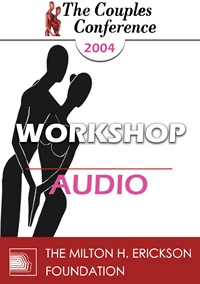
- Average Rating:
- Not yet rated
- Topic Areas:
- Workshops | Couples Therapy | Hypnosis | Hypnotherapy | Experiential Therapy | Unconscious Processes
- Categories:
- Couples Conference | Couples Conference 2004
- Faculty:
- Jeffrey Zeig, PhD
- Duration:
- 1:59:27
- Format:
- Audio Only
- Original Program Date:
- Mar 26, 2004
- Short Description:
- Hypnosis is an experiential method of "gift wrapping" ideas. With or without formal trance, hypnotic methods can be used in the assessment and intervention process of couples therapy.
- Price:
- $15.00 - Base Price
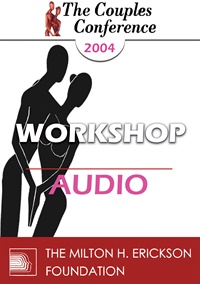
- Average Rating:
- Not yet rated
- Topic Areas:
- Workshops | Affairs | Couples Therapy | Trauma | Infidelity | Relationships | Intimacy
- Categories:
- Couples Conference | Couples Conference 2004
- Faculty:
- Janis Abrahms Spring, PhD, ABPP
- Duration:
- 1:52:35
- Format:
- Audio Only
- Original Program Date:
- Mar 26, 2004
- Short Description:
- Infidelity is not necessarily about sex, but about secrets and the violation of trust. In this workshop, Dr. Spring will map out the trauma of an affair (or other intimate wounds) and help partners think through whether and how to reconcile.
- Price:
- $15.00 - Base Price
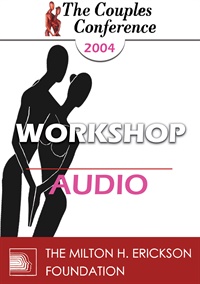
- Average Rating:
- Not yet rated
- Topic Areas:
- Workshops | Couples Therapy | Intimacy | Multicultural | Sex and Sexuality
- Categories:
- Couples Conference | Couples Conference 2004
- Faculty:
- Esther Perel, MA, LMFT
- Duration:
- 1:28:38
- Format:
- Audio Only
- Original Program Date:
- Mar 26, 2004
- Short Description:
- This workshop examines the cultural pressures that shape domesticated sex and the puzzling inverse correlation between greater emotional intimacy and the loss of sexual desire. It will demonstrate how to help couples draw pleasure from the hidden, the suggestive and the uncanny while also respecting their needs for safety and stability. Using case examples, we will explore how to grant the body its profound capacities for communicating in its own language.
- Price:
- $15.00 - Base Price
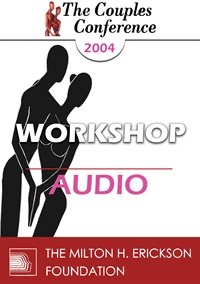
- Average Rating:
- Not yet rated
- Topic Areas:
- Workshops | Attention Deficit Disorder (ADD) | Neurobiology | Relationships | Intimacy | Couples Therapy
- Categories:
- Couples Conference | Couples Conference 2004
- Faculty:
- Daniel Amen, MD
- Duration:
- 2:07:38
- Format:
- Audio Only
- Original Program Date:
- Mar 27, 2004
- Short Description:
- Through stunning new brain imaging research, the ADD brain has been uncovered. Based on extensive research using brain SPECT imaging, Dr. Amen has been able to see where ADD resides in the brain and why it has such a negative impact on behavior, including relationships. This workshop will discuss the impact of ADD on relationships and give strategies to help cope with the major issues.
- Price:
- $15.00 - Base Price
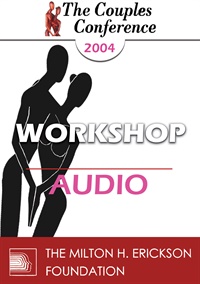
- Average Rating:
- Not yet rated
- Topic Areas:
- Workshops | Couples Therapy | Gender | Masculinity | Love | Avoidant
- Categories:
- Couples Conference | Couples Conference 2004
- Faculty:
- Terry Real, LICSW
- Duration:
- 1:48:39
- Format:
- Audio Only
- Original Program Date:
- Mar 27, 2004
- Short Description:
- It is said that men are afraid of intimacy. Love-avoidant men don't know what intimacy is; what they fear is subjugation - being drained, used, entrapped. These men most often have histories of enmeshment with either one or both parents. That enmeshment can be positive (e.g. the caretaker} or negative (e.g. the scapegoat), but it always leaves the person with both shame and grandiosity.
- Price:
- $15.00 - Base Price
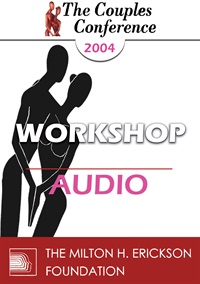
- Average Rating:
- Not yet rated
- Topic Areas:
- Workshops | Couples Therapy | Marriage | Passive-Aggressiveness | Relationships
- Categories:
- Couples Conference | Couples Conference 2004
- Faculty:
- Peter Pearson, PhD
- Duration:
- 1:58:12
- Format:
- Audio Only
- Original Program Date:
- Mar 27, 2004
- Short Description:
- The classic passive-aggressive person is a help-rejecting complainer who will not follow through with carefully crafted agreements and seems to be immune to targeted insights. They often end up with a despairing partner.
- Price:
- $15.00 - Base Price

- Average Rating:
- Not yet rated
- Topic Areas:
- Workshops | Anxiety | Couples Therapy | Depression | Divorce | Marriage | Relationships
- Categories:
- Couples Conference | Couples Conference 2004
- Faculty:
- Pat Love, EdD
- Duration:
- 1:46:45
- Format:
- Audio Only
- Original Program Date:
- Mar 27, 2004
- Short Description:
- Anxiety and depression are fast becoming the leading causes of personal disability and the single greatest destructive force in relationships. Research indicates that when one person in a relationship is depressed, the divorce rate goes up nine times. Therefore, it is vital that therapists learn to recognize typical and atypical symptoms early in therapy. It also is imperative that symptoms of relational depression are recognized. Lecture, video, written exercises and demonstration will be used.
- Price:
- $15.00 - Base Price
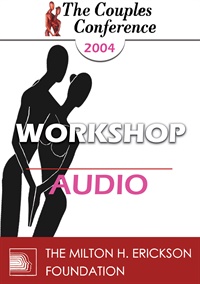
- Average Rating:
- Not yet rated
- Topic Areas:
- Workshops | Couples Therapy | Narcissism | Differentiation | Personality Disorders
- Categories:
- Couples Conference | Couples Conference 2004
- Faculty:
- Ellyn Bader, PhD
- Duration:
- 1:43:12
- Format:
- Audio Only
- Original Program Date:
- Mar 27, 2004
- Short Description:
- Some narcissists want to be adored without giving much in return. Others make outrageous demands. Couples therapists are continually challenged to remain centered and not get derailed by their defensive styles. In this workshop, we will discuss how to promote recovery and repair, how to confront and how to increase differentiation to sustain long-term change.
- Price:
- $15.00 - Base Price
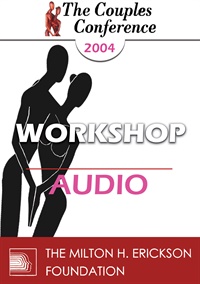
- Average Rating:
- Not yet rated
- Topic Areas:
- Workshops | Couples Therapy | Anger | Therapist Development
- Categories:
- Couples Conference | Couples Conference 2004
- Faculty:
- Peter Pearson, PhD
- Duration:
- 2:02:37
- Format:
- Audio Only
- Original Program Date:
- Mar 28, 2004
- Short Description:
- Chronically angry, hostile, distancing and rigid couples are a clinical and personal challenge. In this workshop, you will learn to change the trajectory of therapy as soon as entrenched patterns are noticed, to stay out of their conflict, and stay calm in the middle of their storm.
- Price:
- $15.00 - Base Price
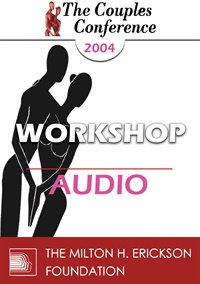
- Average Rating:
- Not yet rated
- Topic Areas:
- Workshops | Couples Therapy | Marriage | Domestic Violence | Abuse | Strategic Therapy
- Categories:
- Couples Conference | Couples Conference 2004
- Faculty:
- Cloe Madanes, HDL, LIC
- Duration:
- 1:53:07
- Format:
- Audio Only
- Original Program Date:
- Mar 28, 2004
- Short Description:
- Madanes will discuss some difficult cases and participants are invited to present their own cases for consultation and advice from Madanes. Emphasis will be on partner abuse, assessment and intervention, including cultural factors and community resources. A minimum of five to ten participants will have a chance to consult. The group will engage actively in exercises to demonstrate specific techniques.
- Price:
- $15.00 - Base Price
Please wait ...

